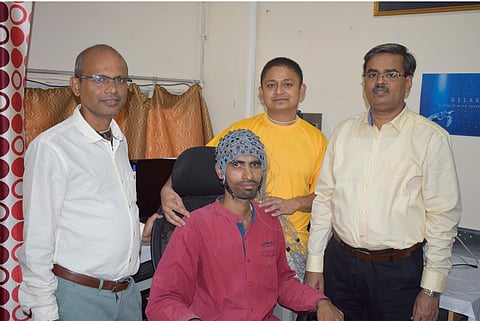

The director of the Indian Institute of Technology, Mandi, Prof Laxmidhar Behera conducted a study on why sad music makes us feel better in sad times. Speaking about this, the director said, “We wanted to find out how the brain reacts when listening to sad music after having an adverse experience or memory.”
For the same, a study led by the director along with other researchers used electroencephalography (EEG) to measure the brain activity of twenty people under different conditions. They focused on brain regions involved in emotion and memory processing: the cingulate cortex complex and the parahippocampus, as stated in a press release by the institute.
How is it done?
"The twenty participants had no musical training to avoid pre-programmed reactions to the selected music. EEG was measured under three states. In the first, EEG was recorded with no input – the baseline. In the second state, EEG was recorded as the participants recalled a sad experience and wrote about it – the Sad Autobiographical Recall or SAR condition. In the third, EEG was measured when they were made to listen to an Indian Classical Raga, Mishra Jogiya Raga. The music was selected by a panel of five music experts and is known for invoking Karuna Rasa (sad emotions)," the note read.
"The EEG measures the electrical activity of the brain, commonly known as the brain waves. It is known that brain waves are of five types – alpha, beta, gamma, delta, and theta, representing a different mood/state of mind. Within the current context, Alpha is, for example, associated with cognitive information processing, while gamma is associated with episodic memory processing," it added.
What is the observation made?
Giving details about this, Prof. Behera said, “Listening to Mishra Jogiya Raga (sad music) appears to promote processing of emotions and memories in the brain, through a three-channel framework involving the alpha brain wave. These mechanisms include increased global and local connectivity in brain areas involved in emotion and memory processing, and increased alertness.”
Further, the findings also show that the brain's activity when listening to sad music is unique and distinct from both the SAR state and the baseline resting state. The coping mechanism of sad music arises from better processing of emotions and memories under the alpha state. Explaining further, a PhD scholar stated, “The coping effects are not simply due to the aesthetic appeal of the music, as previously believed, but an inherent property of sad music," the press release read.
